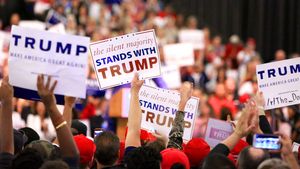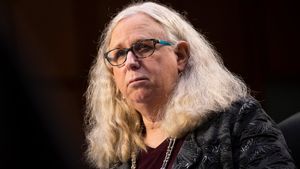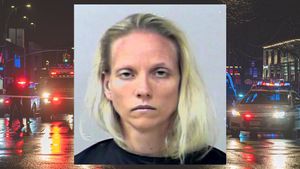I was 23 years old when I met my first boyfriend, a cisgender, bisexual, curly-haired boy who moved to my city in North Carolina from Chicago -- he was charming and handsome with looks akin to Timothee Chalamet and was a social extrovert by all definitions. I was early in my transition, having just started hormone replacement therapy and came out as a transgender woman five months prior.
Looking back on our nine-month relationship, I can see now that I didn't recognize the red flags: 1) text messages that would go without response for a week, 2) he would only see me on weekends, 3) I was always kept a secret, never a topic of public conversation, and 4) our relationship was purely physical, centered around my body, which was preoperative at the time.
I eventually realized our connection wasn't real. He was only interested in being with me out of "exoticism," and I was looking for confirmation of my identity. I had initially thought what we had was enough because it seemed to provide me with the attention I thought I deserved. But ultimately, I was dating someone who couldn't perceive me outside of my transness. He never saw me as the multidimensional human being that I am.
Trending stories
When I finally decided to end our romance, it didn't take long before my former lover found a new trans woman to fetishize, and the experience left me feeling objectified.
That curly-haired boy was in no way an anomaly. I've seen terms defined to describe my ex, as well as the men like him, like "trans-attracted" or "transamorous." And no matter their intent, it is important that we discuss the harmful implications that these labels bring.
Last month following the death of Reese Willoughby, who died after being bullied for openly loving a transgender woman, actor Malik Yoba shared in a deleted Instagram post: "Trans love is ok and bullying has nothing to do with masculinity or HETEROSEXUAL behavior."
"I love all women and count myself among those who find themselves trans attracted," he wrote.
There is nothing wrong with loving people of any gender. Period. But the idea of a "trans-attracted" person, someone who has to carry a separate identity to be attracted to transgender people, feels predatory in nature. It others trans people and implicitly infers that to love them is in some way out of the norm. It also centers the fact that the person is trans as a reason for the attraction, flattening the person into a caricature.
Whether the label is trans-attracted, transamorous, or the outdated and slur-based term "tranny chaser," the truth of the matter is that these types of people are often attracted to us due to our genitalia, with little to no regard for the person they are actually preying on. We become merely objects for their pleasure. The process is ultimately dehumanizing and can include an objectification that often makes men violent.
According to the CDC's National Intimate Partner and Sexual Violence Survey, 47 percent of transgender people are sexually assaulted at some point in their lifetime. A 2015 survey by the Williams Institute found that 30 percent to 50 percent of transgender people have experienced intimate partner violence in their lifetime, and although data isn't complete, 50 percent of trans murders are believed to be as result of IPV as well.
This was made clear this year in the case of Tracy Williams, a 22-year-old transgender woman in Houston. Her boyfriend, Joshua Boueois, was charged with her murder last month.
In an appearance on The Breakfast Club this week, the question of whether "trans-attracted" is a fetish or not was posed.
"How do you determine between fetish and attraction?" co-host Angela Yee asked guests, which included Yoba, Carmen Carrera, Nala Simone Toussaint, and the executive director of the National Black Justice Coalition, David Johns.
"It is about intention and impact," Simone said. "Fetish comes when you only want to be with this person in the dark. You only want to be with that person sexually. Instead of wanting to get to know [them]."
The important distinction is that one does not have to be "trans-attracted" to be attracted to a trans person -- having an attraction that includes trans people is enough. And anything other is rooted in transphobia.












































































Op-Ed: The Problem With Identifying As 'Trans Attracted'
Transgender people can be loved without labels that other us.
Serena Sonoma